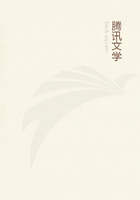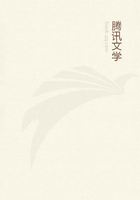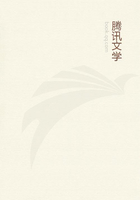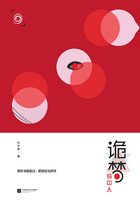Susceptibility to pleasure arising from reflection on the forms of things (whether of nature or of art) betokens, however, not only a finality on the part of objects in their relation to the reflective judgement in the subject, in accordance with the concept of nature, but also, conversely, a finality on the part of the subject, answering to the concept of freedom, in respect of the form, or even formlessness of objects.The result is that the aesthetic judgement refers not merely, as a judgement of taste, to the beautiful, but also, as springing from a higher intellectual feeling, to the sublime.
Hence the above-mentioned Critique of Aesthetic judgement must be divided on these lines into two main parts.
VIII.The Logical Representation of the Finality of Nature.
There are two ways in which finality may be represented in an object given in experience.It may be made to turn on what is purely subjective.In this case the object is considered in respect of its form as present in apprehension (apprehensio) prior to any concept;and the harmony of this form with the cognitive faculties, promoting the combination of the intuition with concepts for cognition generally, is represented as a finality of the form of the object.Or, on the other hand, the representation of finality may be made to turn on what is objective, in which case it is represented as the harmony of the form of the object with the possibility of the thing itself according to an antecedent concept of it containing the ground of this form.We have seen that the representation of the former kind of finality rests on the pleasure immediately felt in mere reflection on the form of the object.But that of the latter kind of finality, as it refers the form of the object, not to the subject's cognitive faculties engaged in its apprehension, but to a definite cognition of the object under a given concept, bas nothing to do with a feeling of pleasure in things, but only understanding and its estimate of them.Where the concept of an object is given, the function of judgement, in its employment of that concept for cognition, consists in presentation (exhibitio), i.e., in placing beside the concept an intuition corresponding to it.Here it may be that our own imagination is the agent employed, as in the case of art, where we realize a preconceived concept of an object which we set before ourselves as an end.Or the agent may be nature in its technic (as in the case of organic bodies), when we read into it our own concept of an end to assist our estimate of its product.In this case what is represented is not a mere finality of nature in the form of the thing, but this very product as a natural end.Although our concept that nature, in its empirical laws, is subjectively final in its forms is in no way a concept of the object, but only a principle of judgement for providing itself with concepts in the vast multiplicity of nature, so that it may be able to take its bearings, yet, on the analogy of an end, as it were a regard to our cognitive faculties is here attributed to nature.Natural beauty may, therefore, be looked on as the presentation of the concept of formal, i.e., merely subjective, finality and natural ends as the presentation of the concept of a real, i.e., objective, finality.
The former of these we estimate by taste (aesthetically by means of the feeling of pleasure), the latter by understanding and reason (logically according to concepts).
On these considerations is based the division of the Critique of judgement into that of the aesthetic and the teleological judgement.
By the first is meant the faculty of estimating formal finality (otherwise called subjective) by the feeling of pleasure or displeasure, by the second, the faculty of estimating the real finality (objective) of nature by understanding and, reason.
In a Critique of judgement the part dealing with aesthetic judgement is essentially relevant, as it alone contains a principle introduced by judgement completely a priori as the basis of its reflection upon nature.This is the principle of nature's formal finality for our cognitive faculties in its particular (empirical) laws-a principle without which understanding could not feel itself at home in nature:
whereas no reason is assignable a priori, nor is so much as the possibility of one apparent from the concept of nature as an object of experience, whether in its universal or in its particular aspects, why there should be objective ends of nature, i.e., things only possible as natural ends.But it is only judgement that, without being itself possessed a priori of a principle in that behalf, in actually occurring cases (of certain products) contains the rule for making use of the concept of ends in the interest of reason, after that the above transcendental principle has already prepared understanding to apply to nature the concept of an end (at least in respect of its form).
But the transcendental principle by which a finality of nature in its subjective reference to our cognitive faculties, is represented in the form of a thing as a principle of its estimation, leaves quite undetermined the question of where and in what cases we have to make our estimate of the object as a product according to a principle of finality, instead of simply according to universal laws of nature.


